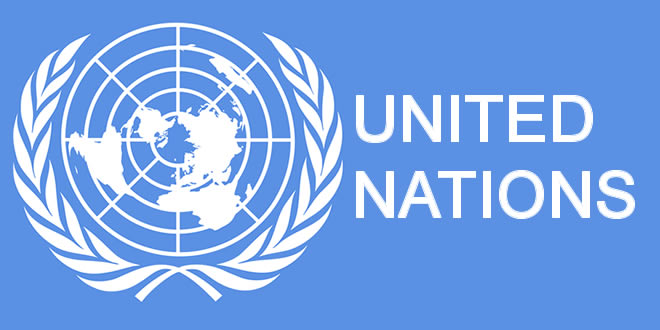The United Nations has said 10.2 million people were in need of humanitarian assistance in various parts of the country.
Edward Kallon, UN humanitarian coordinator in Nigeria, stated this Wednesday during the launch of the 2018 Humanitarian Response Plan, HRP, launch in Abuja.
Kallon said the affected states include Adamawa, Bauchi, Borno, Gombe, Taraba and Yobe.
Giving a breakdown of the figure, he said 1.7 million were internally displaced persons, IDPs; 1.3 million returnees from outside the country and 7.2 million others in various groups.
The coordinator, however, added that UN’s primary concern was the 7.7 million people who he said were in need of such support in the North-eastern states of Borno, Yobe and Adamawa.
“These (the 7.7 million) are people who have been displaced and are living in camps or host communities, people who have returned home to nothing, and people living in other areas that are hard to reach for humanitarians,” he said.
Kallon said of the number, 6.8 million are targeted for humanitarian assistance in the 2018 HRP by sixty organisations, including UN agencies and international and national NGOs.
He said a total of $1 billion dollars would be required for such target, while $196 million is being rolled over from the $196 million derived last year.
Kallon explained that the aim of the plan in 2018 was to build on the humanitarian work carried out in previous years, with three strategic objectives: “Providing life-saving emergency assistance to the most vulnerable people in the conflict-affected areas, ensuring that all assistance promotes the protection, safety and dignity of affected persons and helping people to kick-start their lives again.”
According to him, 3.7 million people are being targeted for food assistance; 2.7 million vulnerable persons being targeted for protection services following “grave” violations of human rights; 5.1 million to be accommodated in medical care and 2.7 million malnourished children and nursing mothers also to be provided for.
Also speaking, Abdou Dieng, Regional Director of World Food Programme, WFP, said the agency spent a total of $126 million in providing 200,000 metric tonnes of food in 2017.
“More than 75 per cent of the food we provide are procured in Nigeria and as many as 75 percent of WFP in-country staff are Nigerians,” he added.
Dieng said in 2018, WFP requires a total of $227.4 million for humanitarian services in the areas of food security, nutrition, logistics, emergency telecommunication among others.
Zainab Ahmed, Minister of State for National Planning, thanked the humanitarian agencies for their commitment in the North-East and other crisis-affected states in the country.
Ahmed reiterated the commitment of the federal government to provide the “enabling environment”
“2018 will be a year we will be concentrating on supporting the internally displaced persons (IDPs) to return to their original communities,” she added.
Meanwhile, North-East Nigeria has recorded the highest maternal mortality rate in the country, as out of 100,000 live birth, 1,549 mothers die in the region yearly compared to 165 in the South West.
A UNICEF Health Officer, OluSeyi Olusunde, Bauchi Field office, stated this during a two-day training for journalists on Ethical Reporting/ Media dialogue on children survival and protection issues, organised by Bauchi State Television Authority, with support from UNICEF in Bauchi.
The training drew participants from states supported by UNICEF Office including Bauchi, Gombe, Plateau, Taraba and Jigawa, with resource persons drawn from UNICEF offices and consultants in media related fields.
In his presentation on Maternal, Newborn and Child health at the training, Olusunde said one woman dies on account of pregnancy or childbirth in Nigeria, pointing out that out of every 100,000 live births, 576 were likely to die.
The UNICEF Health Officer, who stressed that it was unfair for a woman to die while giving life, said one of the key reasons for this state of affairs was the lack of care for girls before pregnancy as well as wide prevalence of low levels of education in some northern states.
He said the 2013 National Health Demographic Survey states that under 5 child mortality rate was 128 deaths per every 1,000 live birth, adding that under 5 mortality rate in the North East was high, recording 115.
Earlier, Samuel Kaalu, the UNICEF Communication Officer in charge of Bauchi Field Office, had said the objective of the training was to enhance the knowledge of participants on ethical reporting on child issues and bring them to the front burner of national events in the states.

